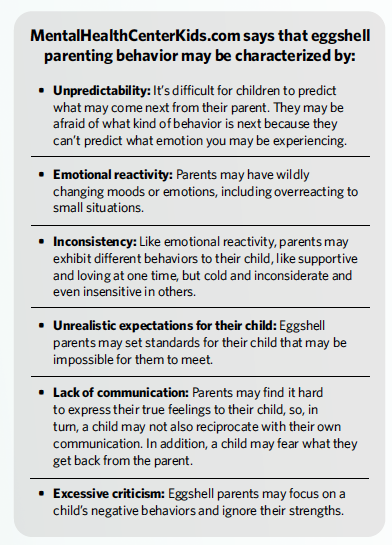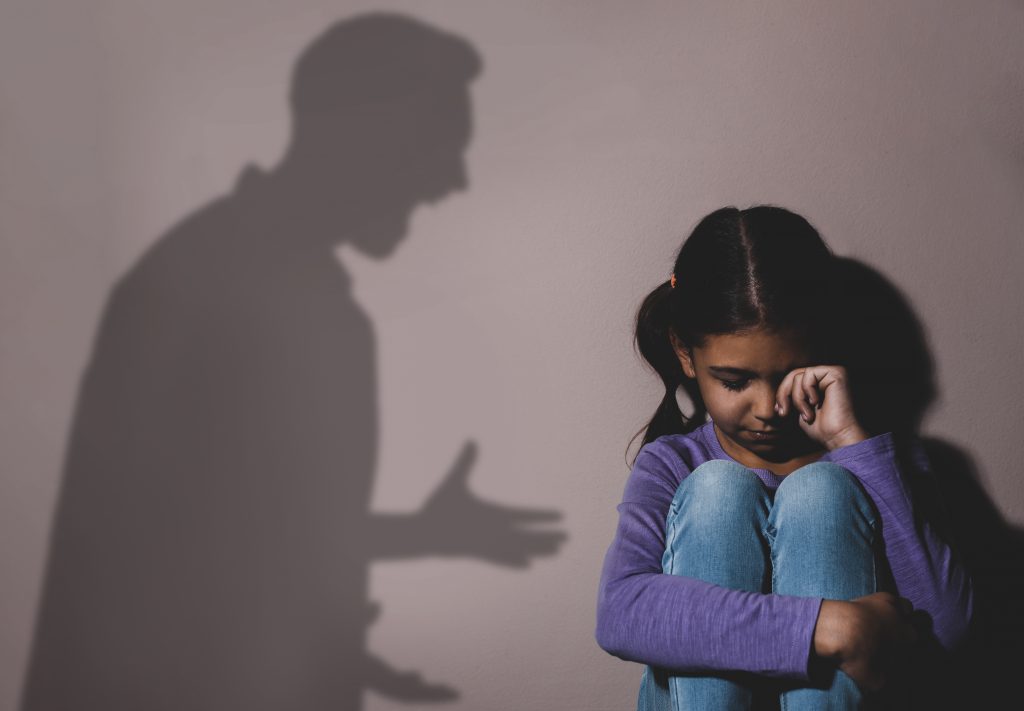Walking on eggshells, metaphorically, is never comfortable in a relationship, as it symbolizes having to tread lightly in communicating with someone else. The phenomenon known as “eggshell parenting” is not a new concept, but it has become more popular since mentioned by a famous psychologist, Jen Sage, on TikTok.
Put simply, “eggshell parenting refers to the type of parenting that results in children ‘walking on eggshells’ in response to their parent’s unpredictable behavior and outbursts,” said CharlieHealth.com. “All parents have a bad day from time to time or may struggle to remain calm and purposeful when their child is having an epic tantrum. Eggshell parenting refers to a pattern of unpredictable and abusive behaviors that leave children feeling insecure, afraid, and anxious.”
Sage explained that parents like this often have erratic behavior that be up and down, including their mood, rationale and anxiety which could lead to children to feel constantly in fear of what may come next. In turn, this creates “an emotionally/relationally/ mentally/physically unsafe and insecure environment” for children.

Unfortunately, the effects of eggshell parenting for children can be far-reaching and last quite a long time. This includes anxiety due to having to deal with a range of their parent’s emotions, relationship avoidance due to the turbulence of their connection with that parent, and hyperviligance of their parent’s emotions, often leading to mental instability, according to Care.com.
More immediate effects can be “social withdrawal, fearfulness, sleep disturbances and difficulty concentrating,” Care.com said.
What Causes Eggshell Parenting?
CharlieHealth.com says, “certain people may be predisposed to being eggshell parents. Typically, parents experiencing mental health struggles are candidates for developing eggshell parenting styles. Mental health conditions, including anxiety [and personality] disorders, depression, bipolar disorder, and active substance use disorder, can impact a parent’s ability to regulate their emotions, which can impact their children.”
Someone who is an eggshell parent also may have had their own struggles in childhood and may be passing this onto their own children through their own behaviors.
“More often than not, eggshell parenting becomes the case if the parent has unresolved issues from their own upbringing. They may have lived in an unstable household, much like the environment that their child is immersed in,” said MentalHealthCenterKids.com.
“Because these issues of having grown up that way have never been resolved, the eggshell parent might not have learned how to manage their feelings in an appropriate manner.”
How to Break the Cycle
First and foremost, experts recommend that parents identify their behaviors contributing to their eggshell parenting. This includes being more self-aware and acknowledging their behavior as well as understanding their responses to situations.
Remember to be kind to yourself and try to repair the relationship with your child.
“Any day is as good as any to start forging that close connection with [your child.] Perhaps you can sit with them one day and simply ask how they have been doing recently; this would be a good start. You can also try to make amends by apologizing for your shortcomings as a parent and by making a commitment with them to communicate what you are feeling and thinking better,” said MentalHealthCenterKids.com.
Other ways to repair this cycle are being more mindful as a parent, avoiding stress, and accepting things you cannot change. Of course, all these practices are easier said than done, especially if you are dealing with your own past traumas. That is why it is imperative to seek external help to navigate these steps. Professional mental health counseling is often a necessary first step to break the cycle of eggshell parenting.
“Learning how to develop a new relationship with yourself and your children is a process –– and not one that will happen overnight. For many, this process will require the assistance of a licensed, trauma-informed therapist,” says CharlieHealth.com.
Eggshell parents may require individual therapy to cope with their childhood trauma as well as family therapy for them and their children.
“Counseling and psychotherapy can definitely make a positive impact on you and your family by not just helping you on how to stop being an eggshell parent but also by facilitating insight and action to be a more functional and emotionally stable human being,” said MentalHealthCenterKids.com.
Related Articles:
Benign Neglect: Parenting Style of the Stars?
Parents VS. Grandparents: When styles conflict!

